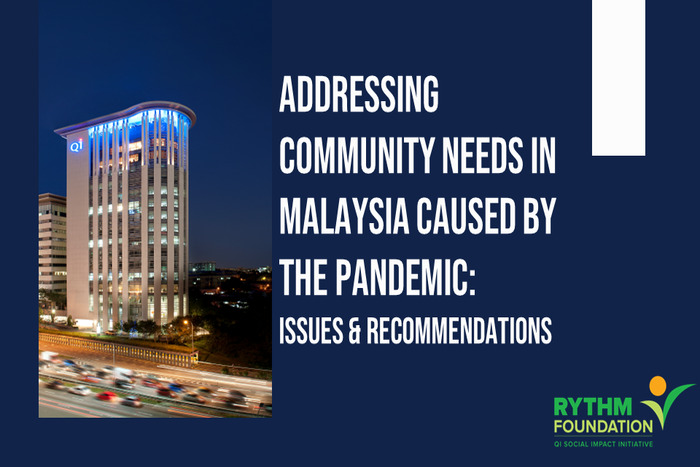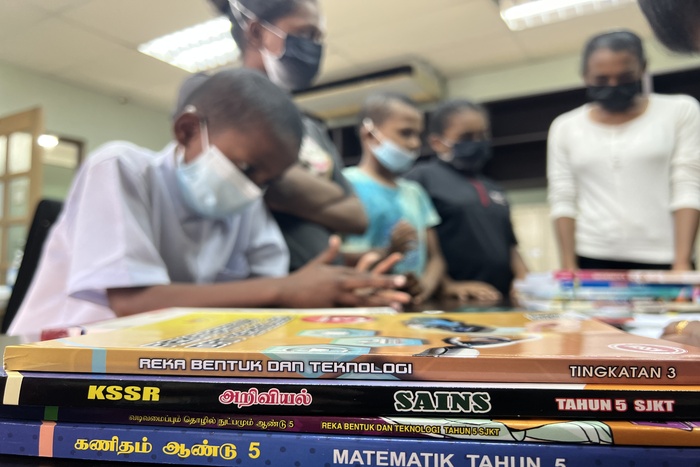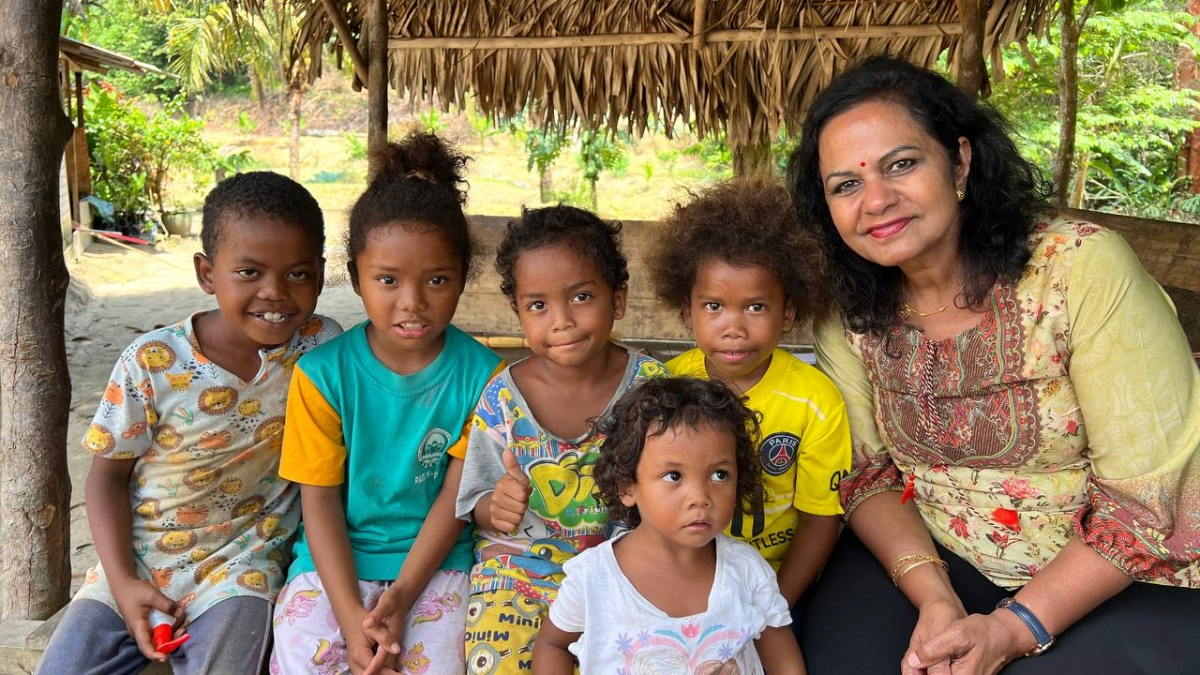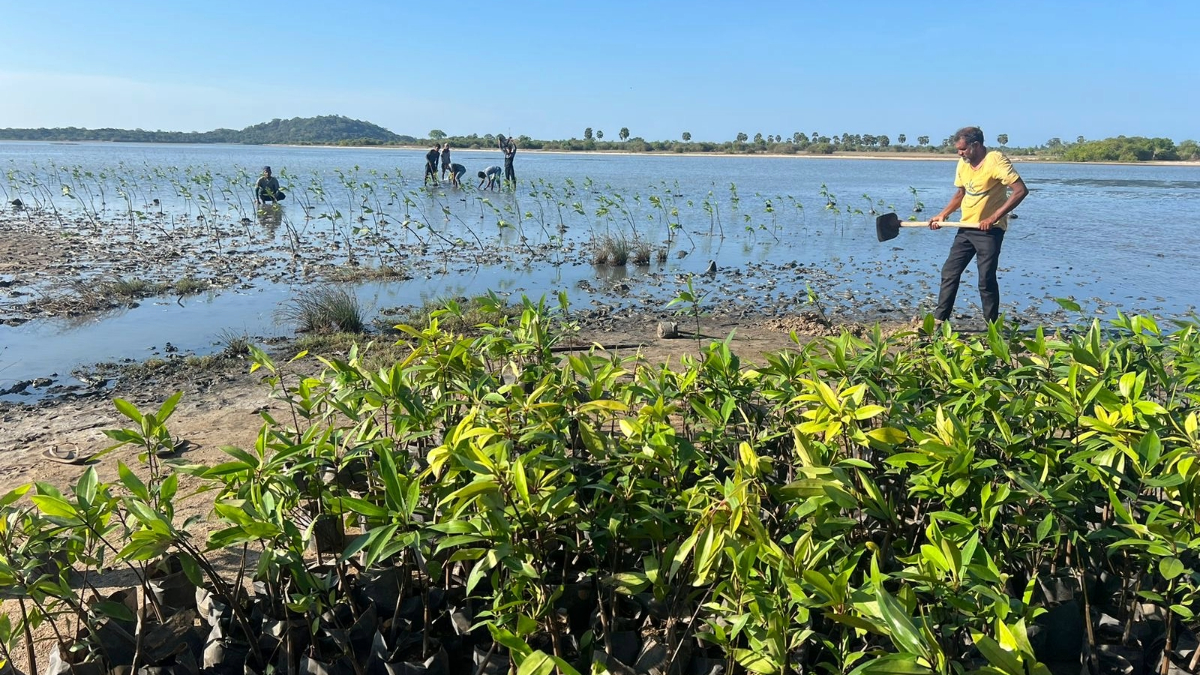When RYTHM Foundation hosted two symposiums last year to examine the core pandemic-induced issues faced by Malaysia’s disadvantaged and underserved communities, we outlined numerous recommendations for the government to adopt.
Following the conferences, RYTHM, the social impact arm of the QI Group, made the suggestions in a Position Paper on the nosed-out critical issues. The paper proposes that the government adopt numerous medium- to long-term solutions in the 12th Malaysia Plan (2021-2025) to mitigate the impact of the pandemic on vulnerable groups.
The virtual seminars served as a functional platform to exchange ideas and develop a comprehensive, practical framework for measures to address the diverse needs of the different communities that surfaced after the pandemic hit.
Also read: Position Paper Series: Addressing Malaysia’s Pressing Pandemic Issues
The Foundation was recently privileged to share its education-related findings with officials from the Ministry of Education (MOE).
The presentation brought to notice three matters: the inequalities of online learning for special needs children, the plight of stateless children in their quest for education, and the importance of implementing mental health awareness lessons in schools.
The online presentation, moderated by Dr Ura Pin of the MOE’s Educational Planning and Research Division, also included representatives from the Curriculum Development, Schools Management, and Special Education departments.
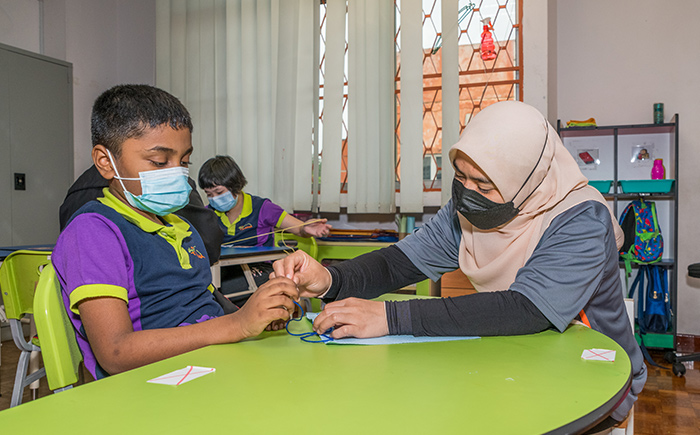
Of Online Learning and Special Education Needs
A crucial issue detailed in the post-symposium report encompassed the challenges of online learning faced by special needs children.
“As we all know, the COVID-19 pandemic changed the global education landscape, compelling educational institutions to adopt face-to-face teaching and learning alternatives,” RYTHM Assistant Manager Latha Arweena Shoffieah said in presenting an overview of the findings.
“However, the shift to online learning posed a challenge for children with special needs. Being physically separated from their special education needs (SEN) teachers impaired their learning abilities because the educators could not provide their students with constructive and enriching learning experiences.”
“Within special education, each child ideally has an Individualised Education Programme (IEP) – a plan developed to help those with an identified disability receive specialised instruction. Face-to-face learning is the most effective method for IEP as it requires in-school services such as speech, behaviour and physical therapies,” Latha said.
To overcome the drawbacks, Latha highlighted several policy recommendations from the symposiums, among them resources to support lower-income families to obtain learning aids and early intervention and vocational programmes that enable children to develop specific skills.
Also read: Position Paper Series: The Impact Of COVID-19 On Special Needs Education in Malaysia
Measures to Support Stateless Children
With government education ineligible or inaccessible for stateless children, various groups concerned about the children’s welfare have mainly filled the gaps. They include NGOs, faith-based organisations, and communities.
“However, these organisations have struggled to maintain the necessary financial resources to operate these centres,” Latha noted.
“The recommendations provided include the MOE reviewing the current policies to look into supporting the education of stateless children because depriving them of schooling invariably contributes toward severe social issues. In addition, the experts suggested that the existing requirements be relaxed to allow the group to receive the basics.”
Also read: Lending Library Makes Textbooks Available To Malaysia’s Stateless Children
For the Optimal Mental Health of Children
During lockdowns at the height of the pandemic, students spent much time studying and attending classes at home. The change in the learning environment resulted in “screen fatigue”, which led to increased stress and mental health problems among students.
Latha emphasised the experts’ recommendation of incorporating mental health elements in the national civic studies syllabus.
“Currently, only students studying social sciences are exposed to mental health topics. Introducing these elements in a broader scope can help reduce the unfamiliarity and phobic attitudes toward emotional health and well-being from an early age.
‘From Academic Focus to a Holistic Approach’
Dr Ura welcomed the proposals and expressed the MOE’s sincerity in potentially forging ahead with the Foundation’s recommendations.
“We look forward to discussing the issues brought to our attention in greater detail,” she remarked. “We will also share the findings with the relevant divisions to examine further.”
In response to the recommendations, Dr Ura emphasised some initiatives by the MOE that prioritise students’ well-being. They are the “Sekolahku Sejahtera” (My Prosperous School) and “Minda Sihat” (Healthy Mind) programmes.
“The ’Sekolahku Sejahtera’ concept is based on the principles of creating a school environment that is safe, comfortable, and inclusive and encourages balanced physical, emotional, and intellectual development among students.
“Likewise, the mental health of children is a MOE priority. ‘Minda Sihat’ allows us to gauge the mental health status of these children. School counsellors are on hand to assist students facing related issues,” Dr Ura explained.
“These programmes highlight that our education policy has shifted from academic focus to adopting a holistic approach to address students’ emotional, social, ethical, and educational needs.”
Also read: Expert Discussion Brings Foundation’s Vision Of Inclusive Education And School Closer To Reality

